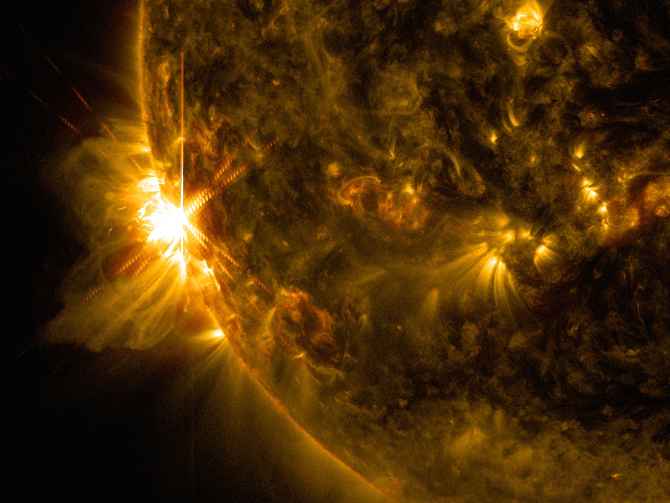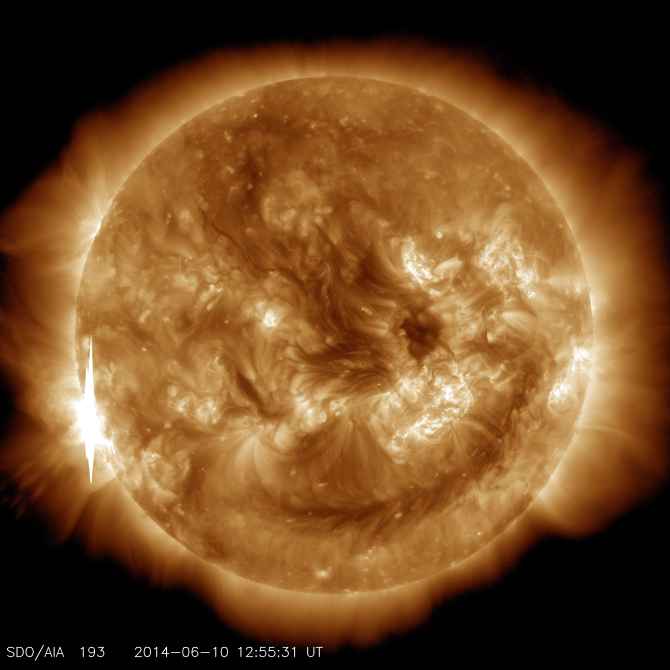Photographs: Courtesy: NASA
The NASA cameras on Wednesday captured a major solar eruption, the third X-class flare in two days.
The flare was classified as an X1.0 and it peaked at around 3:30 pm IST on Wednesday.
. Don’t forget to check the video on the last slide…
MUST SEE! Sun puts on a fireworks show
Image: The second X-class flare appears as a bright flash on the left side of this image from NASAPhotographs: Courtesy: NASA
“Images of the flare were captured by NASA's Solar Dynamics Observatory. All three flares originated from an active region on the sun that recently rotated into view over the left limb of the sun,” NASA said in a statement.
. Don’t forget to check the video on the last slide…
MUST SEE! Sun puts on a fireworks show
Image: Combination photo showing the three solar flaresPhotographs: Courtesy: NASA
Harmful radiation from the short-lived explosions cannot pass through Earth's atmosphere to physically affect humans on the ground. However, when intense enough, they can disturb the atmosphere in the layer where GPS and communications signals travel.
Click NEXT to see the video…
MUST SEE! Sun puts on a fireworks show
Solar flares are powerful bursts of radiation. The last flare was classified as an X2.2 flare. X-class denotes the most intense flares, while the number provides more information about its strength. An X2 is twice as intense as an X1, an X3 is three times as intense, etc., the NASA statement explained.




article